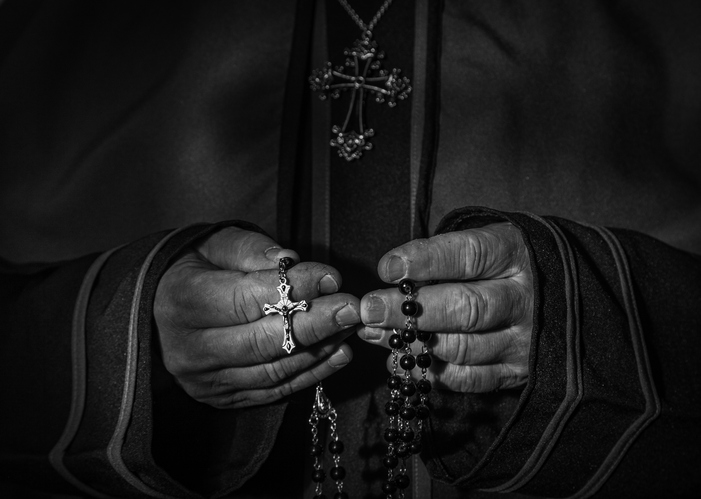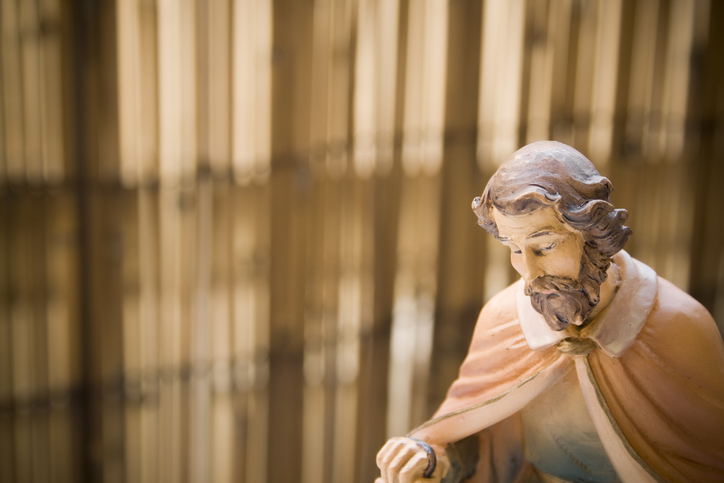Throughout these three weeks and three days of Lent, a certain Psalm Response has been running through my head. It has become the theme of my Lenten journey. “Return to Me with all your heart, the source of grace and mercy, come seek the tender faithfulness of God.” The minor key creates a somber melody that wafts in and out of my consciousness most days, grounding me, reminding me, centering me.
What does it truly mean for me, in my life to return to God? What does it mean to return to Him with my whole heart? How is He the source of grace? And of mercy? Are my eyes fully opened to His faithfulness? Do I realize how tender his faithfulness truly is?
In a similar vein, today’s First Reading invites us “Come, let us return to the Lord…Let us know, let us strive to know the Lord.” During the stretch of time between my missionary days and my present state as wife and mother, I feel like my spiritual life was so much deeper. I prayed often, attended a young adult group, went on periodic retreats and was actually able to focus during Mass. My relationship with God was at the forefront of my personal life and my work life. Perhaps I held on to Him so tightly because I was literally begging Him to send me a husband. Now that that dream and many more have been fulfilled, my mind is occupied with a multitude of other things and I often fail to reach out to my Creator and first Love.
I have a great need this Lent to return to God, to turn my heart to Him often during the day, to speak to Him as a friend. I see so much in myself that I want to change… so many sarcastic comments that shouldn’t escape my lips, so many unkind thoughts that should never enter my mind, so much frustration that shouldn’t fester. My patience level with my kids is at about 10% and the times my voice contains a high or negative tone are much too frequent. I want to be a good example, the light of Christ to others, yet I fail again and again.
One thing I have learned is that virtue is much more easily attained by simply zipping my lips. The more I am silent, the less I sin. I don’t always have to have an opinion or be funny. I don’t always have to defend myself and I’m not always right. I don’t have to talk to others about every little thing that bothers me about someone else. I don’t have to be so dramatic and constantly seek attention or praise.
Lord, grant me the humility of the tax collector in today’s Gospel who had the courage to beseech you: “O God, be merciful to me a sinner.” With your grace and mercy change is possible. Allow me to see Your tender faithfulness. Help me to return to you with all my heart.

Tami grew up in Western Michigan, a middle child in a large Catholic family. Attending Catholic schools her whole life, she was an avid sportswoman, a (mostly) straight A student and a totally type A sister. She loves tackling home projects, keeping tabs on the family finances and finding unique ways to love. She spent early young adulthood as a missionary in Mexico, studying theology and philosophy, then worked and traveled extensively before finishing her Bachelor’s Degree in Western Kentucky. Her favorite things to do are finding fun ways to keep her four boys occupied, quiet conversation with the hubby, and grocery shopping with a latte in her hand. She works at Diocesan, is a guest blogger on CatholicMom.com and BlessedIsShe.net, runs her own blog at https://togetherandalways.wordpress.com and has been doing Spanish translations on the side for the past 18 years.




















